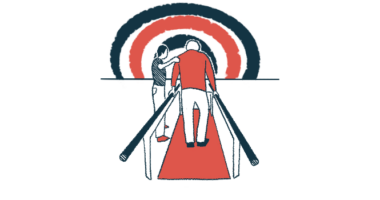Learning to Pay Attention to the ‘Histamine Flicker’

I was surprised to discover a link between my chronic runny nose and Parkinson’s disease (PD) while I was doing research on the effect of over-the-counter antihistamines on PD medications.
I have always thought that my chronic runny nose was because of allergies. I sneeze when I walk down the laundry soap aisle in the grocery store, or when the mold count gets high, which happens quite often in this part of the country. But the sudden onset of a chronic runny nose has turned out to be much more than allergies. Since being diagnosed with PD seven years ago, my nose drips a lot! I call this the “histamine flicker.”
For years, I took a daily over-the-counter antihistamine medication to control my runny nose. After reading that some PD patients respond poorly to this treatment, I stopped taking it. It really wasn’t working anyway.
But I noticed that two things happened. First, my pain decreased considerably — a surprise gift! Second, the histamine flicker effect was quite intense for several weeks. After discontinuing using antihistamines every day for seven years, I experienced a “Niagara Falls nose” as my body adjusted to the change.
There wasn’t much research on PD and chronic runny nose, or rhinorrhea, until a 2008 study published in the journal Movement Disorders that associated the phenomenon with olfactory impairment. A 2010 study published in the International Journal of Neuroscience also linked runny nose and PD, but it concluded that there was no significant impact on the sense of smell. A 2011 study, also in Movement Disorders, found rhinorrhea to be a common non-dopaminergic feature of PD, but noted that it was unrelated to both olfactory or motor deficits.
Well, I haven’t lost all of my sense of smell, but my nasal dripping has increased in some unusual situations.
I seem to have a connection between insomnia and my histamine flare. I have a hyper-arousal “time to wake up!” event that happens around 11 p.m., and lasts no more than 15 minutes. It makes falling asleep a chore. I had to shift my bedtime because of this histamine flicker, but it’s a minor inconvenience and it’s manageable. I have also experienced a rapid-fire histamine flicker when I’m passing a kidney stone, or after an orgasm.
Histamine was first identified in the brain about 50 years ago, but only in the last few years have researchers gained an understanding about how it regulates sleep/wake behavior.
For me, the histamine flicker has become an alarm that alerts me to physical issues that I am not attending to, like a biofeedback system. If I don’t attend to my PD self-management program, then the histamine flicker effects worsen. Slowly, patiently, I’m learning how to hear the low-intensity histamine flicker.
Precursor sensations tell me a histamine flicker is about to happen. A subtle little change, like feeling flushed, or a slight increase in a drippy nose, signals something is out of balance. It is so much easier to manage when I use the precursor sensation to catch it early.
I am still new at using PD symptoms as a form of biofeedback. It works for me because I have a mental model based on the spectrum stage theory and malfunctions in the second dopamine center, which exhibit as dysregulation in homeostasis. This map not only helps explain what is happening, but it also offers me a different path for self-management. I can shift my perspective on the constantly annoying dripping and see it as something helpful: a biofeedback tool.
And please hand me another Kleenex!
***
Note: Parkinson’s News Today is strictly a news and information website about the disease. It does not provide medical advice, diagnosis or treatment. This content is not intended to be a substitute for professional medical advice, diagnosis, or treatment. Always seek the advice of your physician or another qualified health provider with any questions you may have regarding a medical condition. Never disregard professional medical advice or delay in seeking it because of something you have read on this website. The opinions expressed in this column are not those of Parkinson’s News Today or its parent company, BioNews, and are intended to spark discussion about issues pertaining to Parkinson’s disease.








Comments
Reuben Altman
Interesting observation. I was curious about my increased runny nose and occasional but unusual sneezing recently, but had chalked it up to a seasonal allergy. So far this is a relatively minor possible consequence of my PD if that is in fact the cause. Though now that the notion has been brought to my attention, I'm not surprised. I wonder if there is a compelling reason to address this symptom and what that might entail?
jessica Olmos
my mom has had a constant runny nose for about 1 year now no end it sight it seems for her
roger h.
I am not sure whether this is related, but I get teary eyes and running nose, usually in the evening. Just use a lot of Kleenex. I know of one other PWP that suffered the same. Lost sense of smell many years ago and the tears came more recently.
Don
For years I have had ídeopathic' rhinitis and have just had nasal surgery for the second time to try and ease a very runny nose. Perhaps my PD, of which I was aware prior to the first operation, could be the root cause. When I have a followup visit with the ENT surgeon I will put the question.
But I do not expect too much as various specialists seem unaware of PD symptoms eg my skin specialist was prepared to argue that melanomas had nothing to do with PD until he followed it up himself and found there is a dobling of risk. I will be interested to see what the ENT surgeon says.
fakhiuddin ahmed
I have great difficulty in making my wife take her PD meds on time and to to keep a sleep schedule. She falls asleep at 8 pm and is wide awake at 1 am.Tea/coffee has no effect. Sleep disturbances are often followed by childish acts.
Rhinorrhoea is a problem but can be handled by sufficient tissue paper
GD
My nose runs after a meal, sometimes during. Also, cool weather, like the Canadian winter makes it absolutely necessary for me to pack 10-20 tissues in my coat pocket for easy access while outside. And I often carry extra in another pocket in case those first ones run out. It is a watery kind of discharge. Makes for an unpleasant walking partner, if anyone chose to walk with me.
Off topic, but since I was diagnosed with PD 12 years ago (in 2010), I suspected that excessive yawning was an early symptom of PD. I've read many recent articles linking excessive yawning to brain disease and in my case PD. When I was 14, in 1983, a teacher came over to me to speak to me privately. He noticed that I yawned a lot. That I yawned too much. He was genuinely concerned, and thought I should see my family doctor about it. I figured that it was just yawning, maybe from being tired from all the running I did for the cross-country running team. But that moment imprinted on my memory and while I was thinking of possible very early symptoms of PD, I looked up yawning and PD. There is a connection.